A deep dive into split system heat pumps: How they can enhance your home’s climate
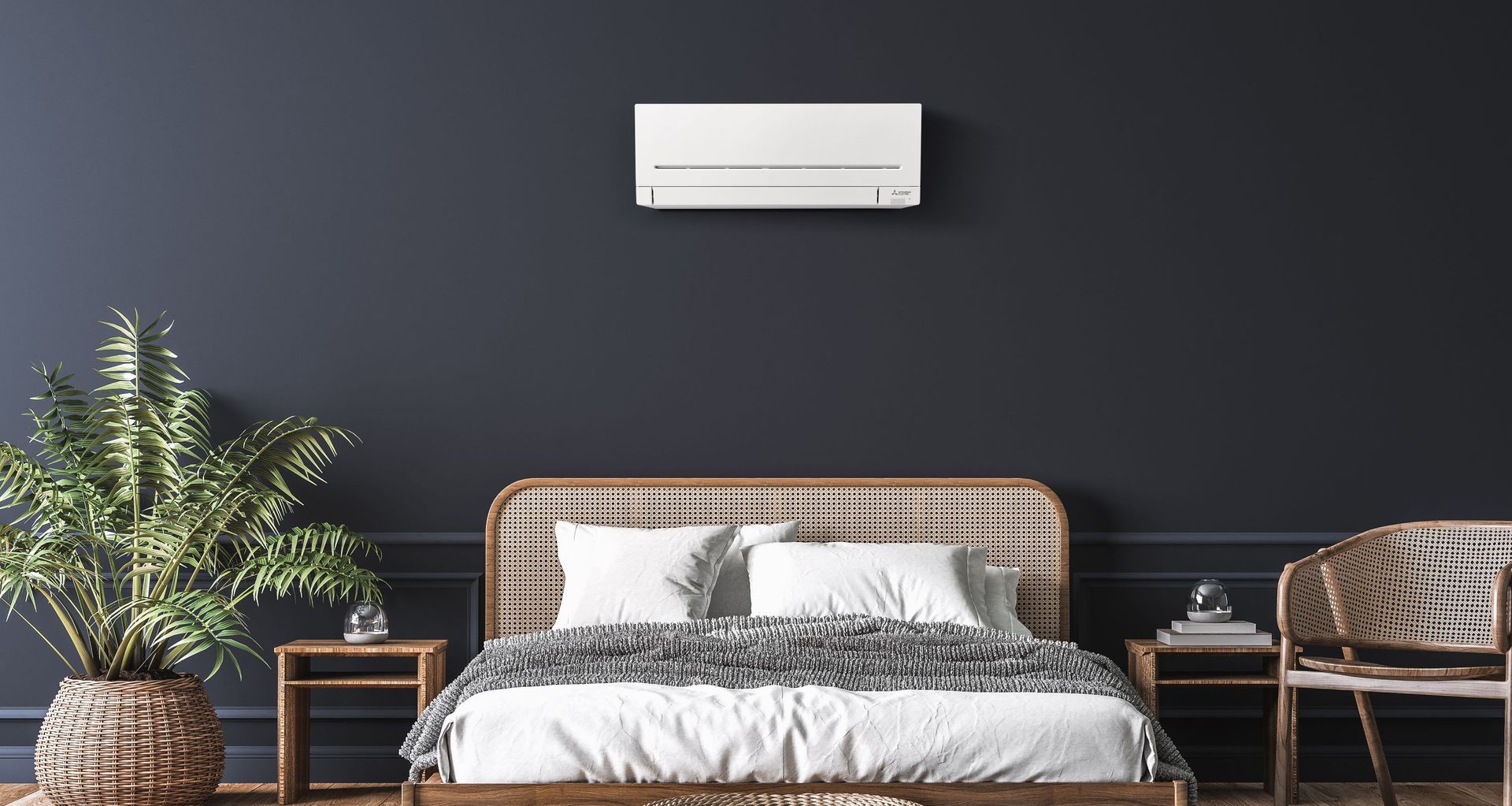
Split system heat pumps are highly versatile, providing both heating and cooling capabilities in one unit. This dual functionality adds convenience and ensures your home remains comfortable regardless of the season. Additionally, their energy efficiency can lead to significant savings on utility bills as this guide explains and more.
What is a split system heat pump?
A split system heat pump is a type of heat pump designed to regulate the temperature in your home efficiently. This type of system has two main components: an indoor unit and an outdoor unit. These units work together to transfer heat, giving both heating and cooling functions. During cold frigid winters, the system extracts heat from the outside air and brings it indoors to warm your home. During hot summers, the process is reversed, and the system removes heat inside your home, releasing it outside to cool your living space.
The indoor unit
The indoor unit of a split system heat pump contains the evaporator coil and fan, which work together to either absorb heat from the indoor air and cool it in cooling mode or release heat into the home in heating mode. The fan then distributes the conditioned air throughout your home, ensuring a comfortable indoor environment year-round.
The outdoor unit
The outdoor unit houses the compressor and condenser coil, with the compressor pumping refrigerant through the system. In cooling mode, the condenser coil releases heat to the outside air; in heating mode, it extracts heat from the outside air and transfers it inside your home.
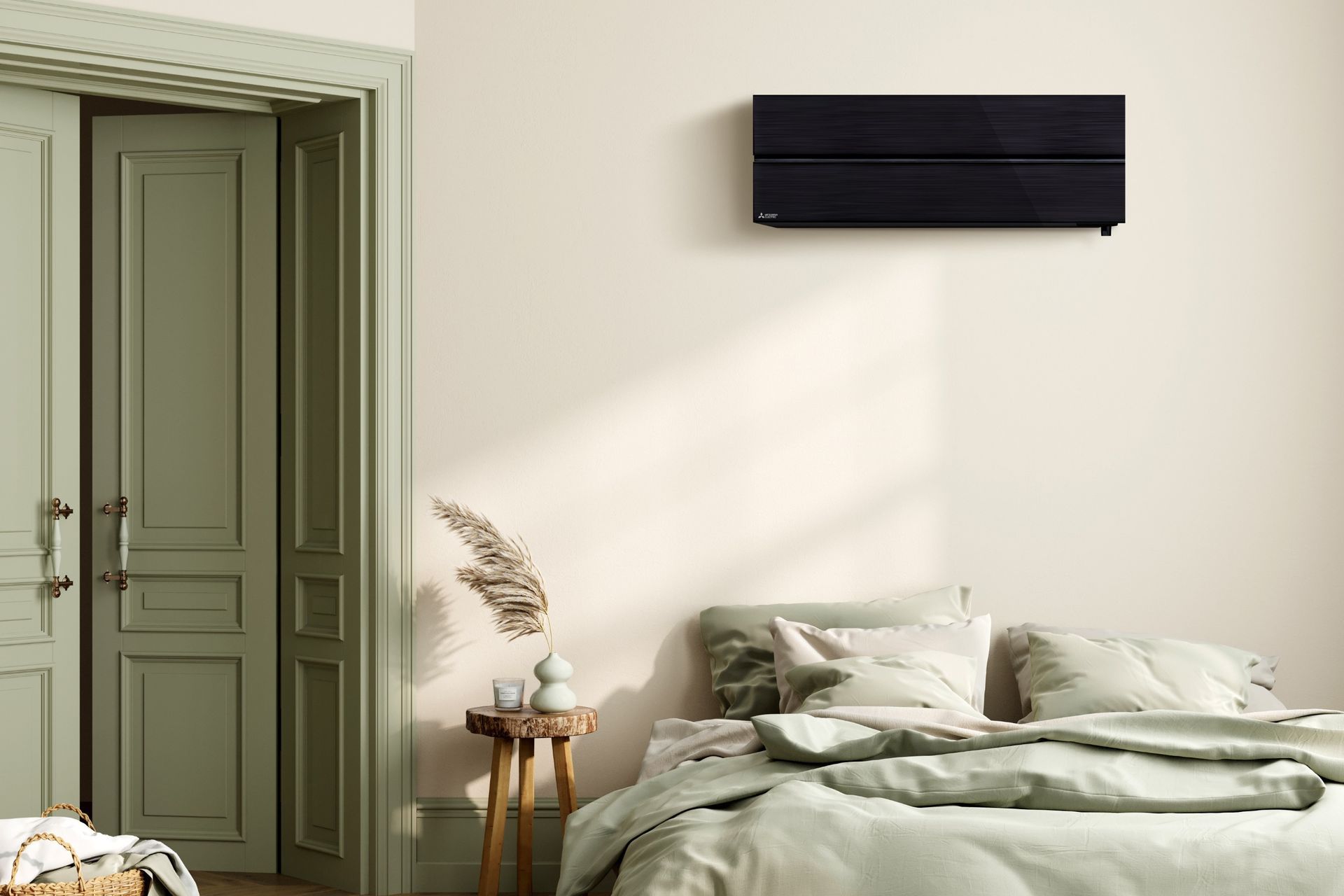
Types of split system heat pumps
There are two main types of split system heat pumps on the market in New Zealand. These are:
1. Single-split system heat pumps
This type connects one indoor unit to a single outdoor unit, making it ideal for cooling or heating a single room or small area.
2. Multi-split system heat pumps
Links one outdoor unit to multiple indoor units, providing flexible temperature control across several rooms.
Benefits of a split system heat pump
There are many great benefits of a split system heat pump which is why it’s become such a popular option for homeowners in New Zealand. This includes:
1. Energy efficiency
Known for their energy efficiency, these heating and cooling systems transfer heat rather than generate it, reducing energy consumption. This efficiency can lead to substantial savings on utility bills, making split-system heat pumps an economical choice for maintaining indoor comfort.
2. Year-round comfort
One of the standout features of split system heat pumps is their ability to provide both heating and cooling. This dual functionality ensures that your home remains comfortable throughout the year, regardless of the season. Whether you need to warm up during a chilly winter night or cool down on a scorching summer day, a split system heat pump has you covered.
3. Improved air quality
Many split system heat pumps come equipped with advanced air filtration systems. These filters improve the overall indoor air quality by removing dust, pollen, allergens, and other pollutants from the air. This can be a great help if you have allergies or respiratory conditions, as it creates a healthier living environment.
4. Quiet operation
Split system heat pumps are designed to operate quietly, adding to a more peaceful home environment. The slight noise that is emitted from these systems is much lower than that of traditional heating and cooling systems. Due to the lack of noise, it makes this system an ideal choice for bedrooms, living rooms, and other areas where minimal noise is preferred.
5. Easy installation
Unlike other HVAC systems, split system heat pumps are generally easier to install. The indoor and outdoor units are connected by refrigerant lines, requiring only a small hole for the connection. This simplifies the installation process and reduces the need for extensive home modifications.
6. Zoning capabilities
Many split system heat pumps offer zoning capabilities, allowing you to control the temperature in different areas of your home independently. This feature enables you to customise the climate in each room or zone according to your preferences, enhancing comfort and potentially reducing energy usage by only heating or cooling occupied spaces.
7. Environmental friendliness
Split system heat pumps use electricity to transfer heat rather than generate it. Transferring heat through electricity produces fewer greenhouse gas emissions and a lower carbon footprint.
8. Long lifespan
When properly maintained, split system heat pumps have a long lifespan, providing reliable heating and cooling for many years. Regular maintenance, such as cleaning filters and checking refrigerant levels, can help extend the life of your system and ensure it operates at peak efficiency.
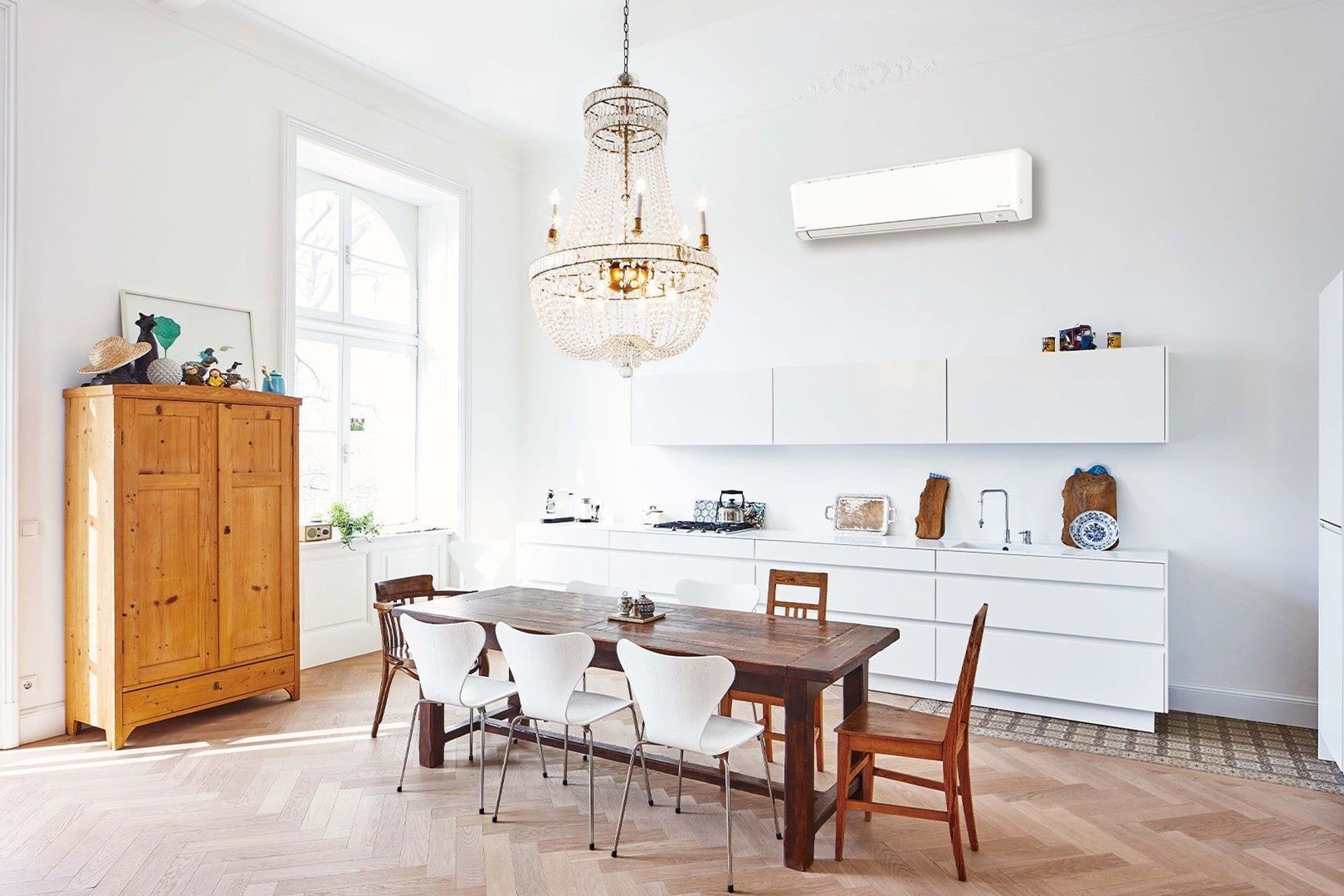
Maintenance requirements of a split system heat pump
Regular maintenance of a split system heat pump ensures efficiency and longevity. It’s important to include cleaning or replacing air filters every one to three months, inspecting and cleaning the coils annually, and checking refrigerant levels to address leaks. The outdoor unit should be cleared of debris, and the drain should be checked to prevent clogs. Monitoring system performance for oddities and scheduling professional maintenance once a year can help maintain optimal operation and ensure a long lifespan.
Installation cost of a split system heat pump
The average cost of installing a split system heat pump will vary depending on the size, placement and other factors. For a single split-system heat pump, you can expect to pay around $500 to $1,500 for a basic set-up with necessary electrical work. Furthermore, if you have a more complex installation, the cost will be between $2,000 and $5,000. Keep in mind that additional cost can be involved but this depends on the requirements of your house. For peace of mind, it’s best for you to get a detailed quote from a licensed heat pump installer.
Annual operating costs
Understanding the annual operating costs is important for any home to ensure that you are within your spending budget. However, the cost will depend on the type of system, its efficiency and how often it is used. The average annual cost of a small heat pump (2.5kW) is around $200, while a large heat pump (10kW) is about $1,000. You can figure out your hourly heat pump cost using this formula:
Cost to run heat pump (per hour) = Unit cost for electricity ($ per kWh) x Heat pump capacity (kW) ÷ COP (Coefficient of performance for heating) or EER (Energy Efficient Ratio for cooling)
Here’s an example of how to find the cost of a small heart pump operating at 2.5kW with the following assumptions:
- Average unit cost in New Zealand: $0.22 per kWh
- Heat pump capacity: 2.5kW
- Average COP or EER: 3.5
- Average daily operating hours: 6 hours
- Annual operating days: 200 days (average usage pattern)
Cost per hour = $0.22 (unit cost for electricity) x 2.5 (heat pump capacity) ÷ 3.5 (COP or EER) = $0.1571 per hour
Annual cost = $0.1571 (cost per hour) x 6 (daily operating hours) x 200 (Annual operating days) = $188.57 per year
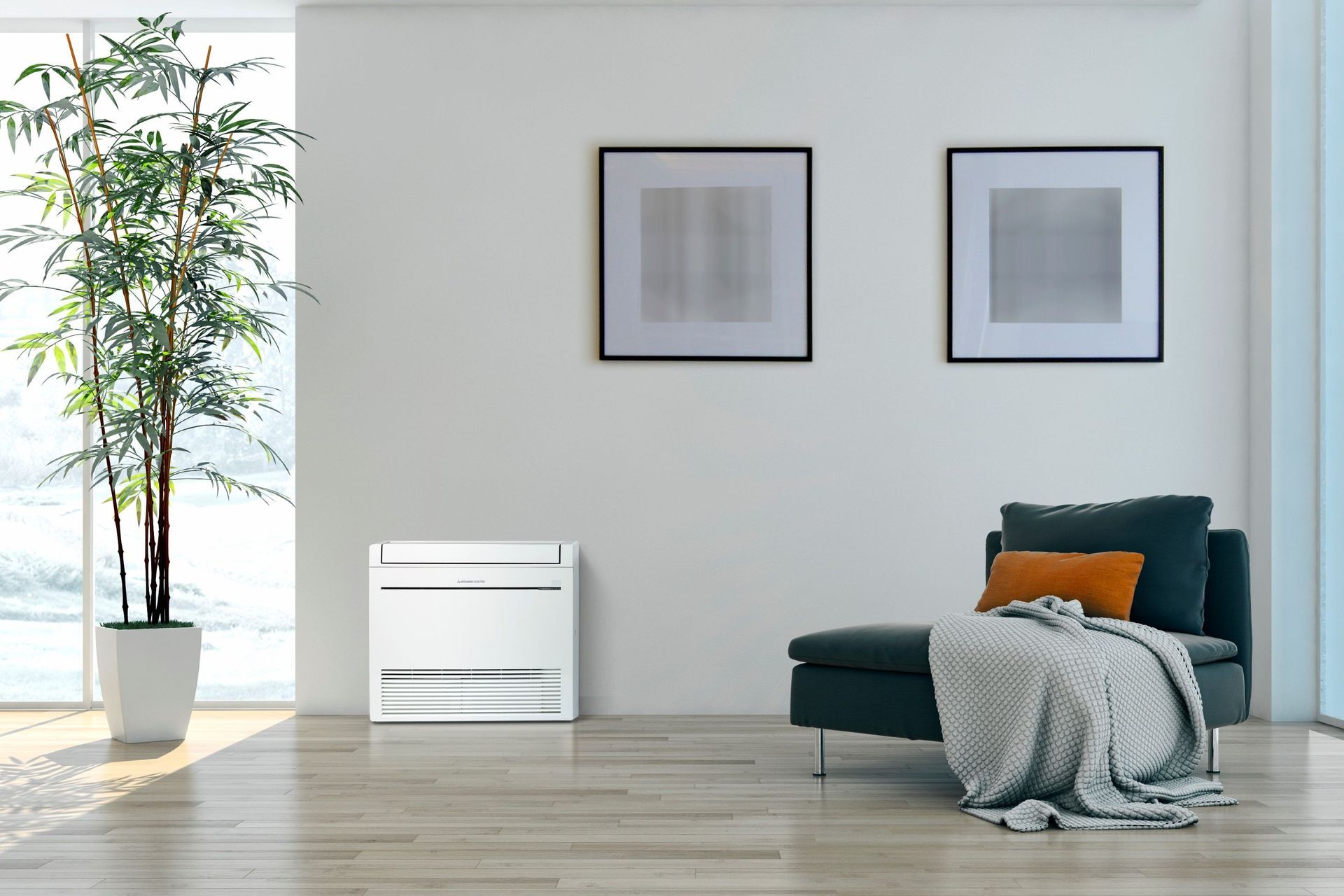
How to choose a split system heat pump?
Choosing a split system heat pump involves several key considerations to ensure you select the right unit for your needs:
1. Size and capacity
Calculate your home's heating and cooling load; in general, a 20-40m2 room can be taken care of by a 2-5kW heat pump, depending on if the room is insulated. However, an HVAC professional can help with this assessment to ensure the system is neither too small nor too large, which can impact efficiency and comfort.
2. Energy efficiency
Look for models with high Seasonal Energy Efficiency Ratio (SEER) and Heating Seasonal Performance Factor (HSPF) ratings. Higher ratings indicate better energy efficiency, leading to lower utility bills.
3. Features
Consider additional features such as programmable thermostats, smart controls, and air purification systems. These features can enhance comfort, convenience, and air quality.
4. Brand and reliability
Choose a reputable brand known for reliability and performance. Research customer reviews and ratings to gauge the system’s durability and the manufacturer's customer service.
5. Installation requirements
Assess the installation requirements and space available for both the indoor and outdoor units. Ensure the system can be installed in your home without significant modifications.
6. Warranty and support
Review the warranty terms and manufacturer support. A good warranty can protect your investment and provide peace of mind.
7. Cost
Compare the cost of different models, including installation and potential maintenance. Balance your budget with the features and efficiency you need.
By considering these factors, you can select a split system heat pump that provides high performance, energy efficiency, and comfort for your home.
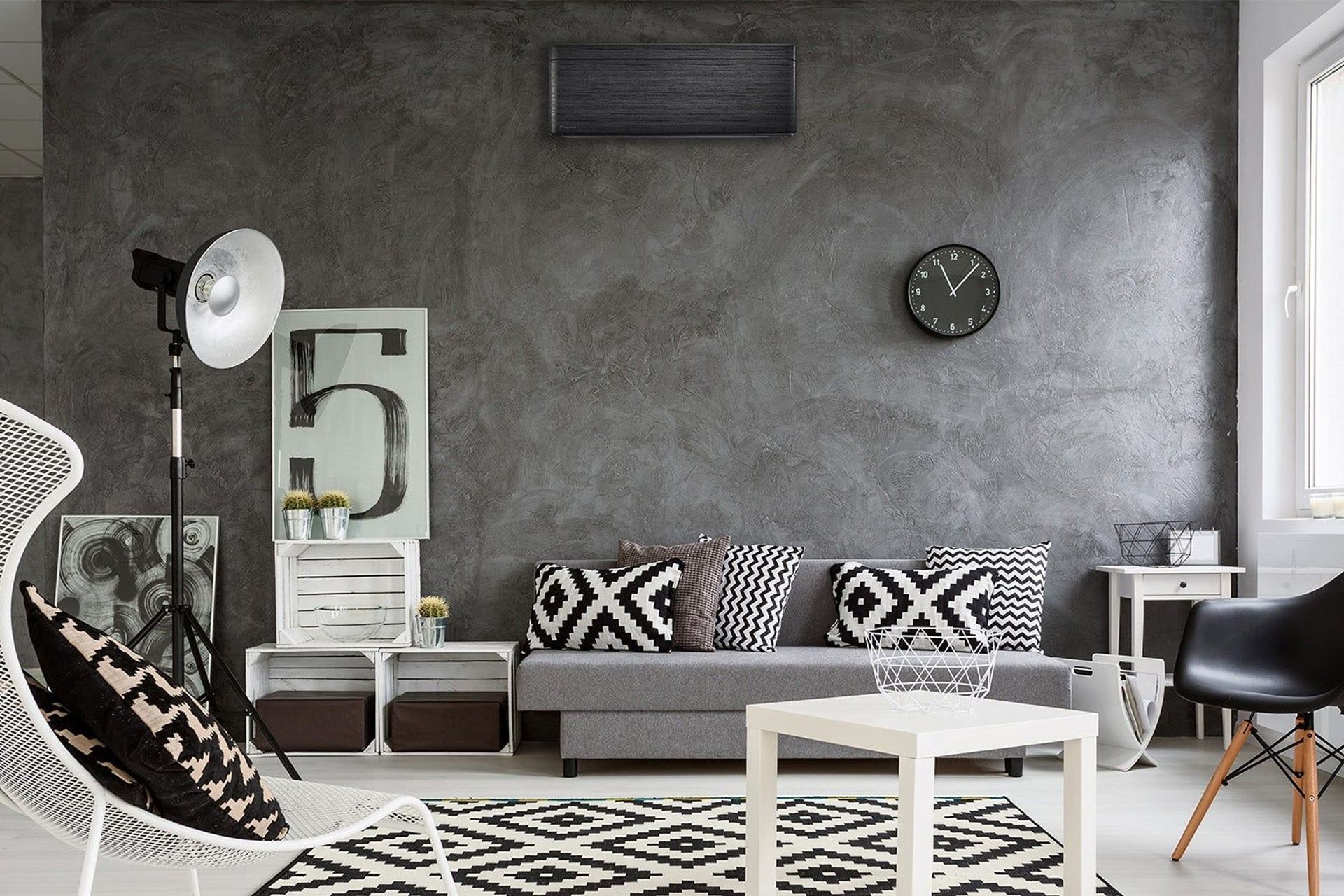
Stay cool in the summer and warm in the winter
A split system heat pump offers an efficient and versatile solution for maintaining a comfortable indoor environment throughout the year. By combining both heating and cooling functions into one unit, it provides year-round comfort, energy savings, and improved air quality. With benefits such as quiet operation, easy installation, and zoning capabilities, it suits various needs and home settings.
When choosing a system, consider factors like size, energy efficiency, additional features, and installation requirements to ensure you select the right model for your home. Investing in regular maintenance will further enhance the system's performance and longevity. Overall, a split system heat pump is an excellent choice for those seeking an affordable, effective, and environmentally friendly heating and cooling solution.
Related article: How to choose a fireplace: 8 top tips to get you started
